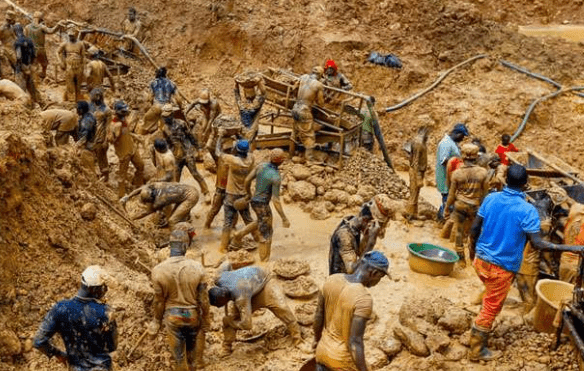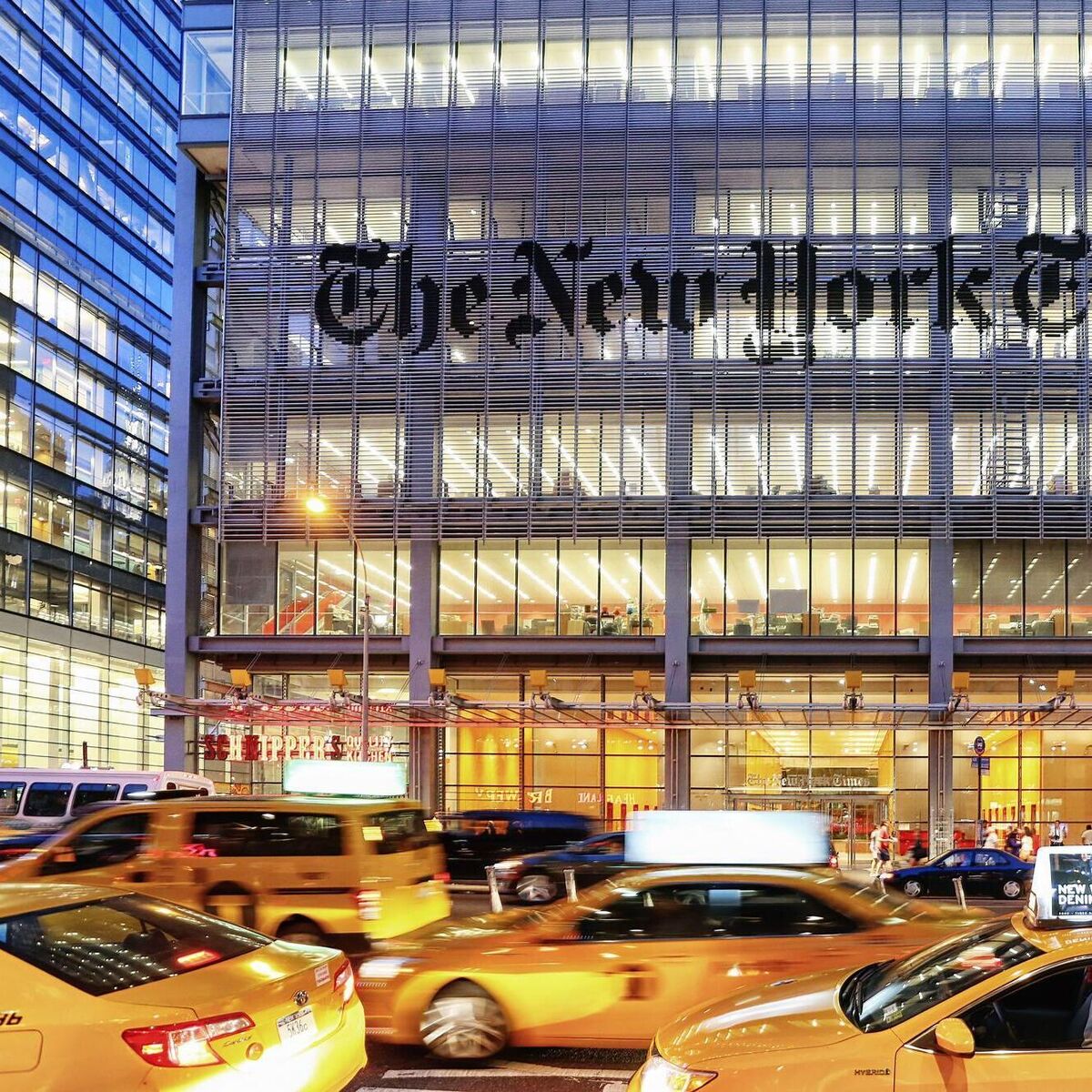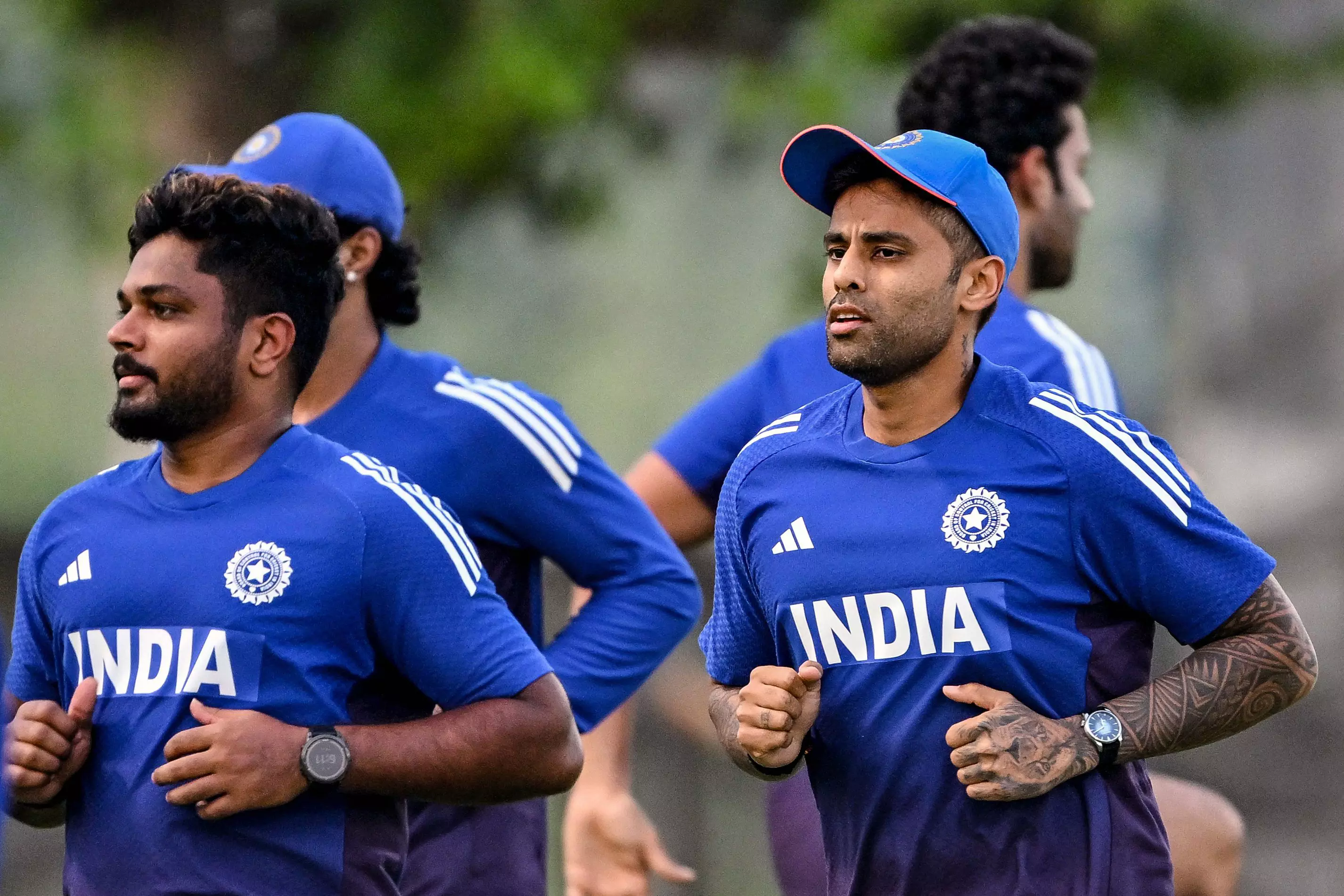By Francis
Copyright thebftonline

Illegal mining—galamsey—is no longer a side issue confined to remote villages and forest fringes. It has become the single biggest threat to Ghana’s survival.
It is an existential crisis that cuts across economics, health, security, and morality. Our rivers are poisoned, our forests torn apart, our children pulled from classrooms into dangerous pits, and our leaders ensnared in a web of complicity.
From the Pra to the Birim, the Ankobra to the Offin, rivers that once sustained life now flow thick with brown sludge.
Cocoa farms and food-growing areas are transformed into graveyards of toxic tailings. Communities that once drank freely from streams now queue for sachet water—or worse, ingest poison-laden liquid that silently destroys kidneys, livers, and lives.
The warning is clear: if we lose our rivers, we lose our future. And in losing our future, we risk losing our very soul.
A Crisis in Broad Daylight
The most troubling aspect of galamsey is that it thrives not in secrecy but in full view of the nation. Excavators are driven on highways in broad daylight. Fuel is delivered openly. Mercury and cyanide are trafficked with astonishing ease. Politicians look the other way, security agencies collect their “share,” and some traditional rulers grant concessions in exchange for silence.
Government periodically stages dramatic “wars on galamsey”: high-profile arrests, press conferences, and photo opportunities with seized machinery. Yet time and again, these excavators mysteriously reappear at illegal sites. It has become a tired theatre of deception. Meanwhile, the miners dig on, leaving scars on the land and death in the water.
The Human Tragedy
Beneath the environmental devastation lies a profound human tragedy. Farmers are displaced from ancestral lands. Families lose the only livelihood they know. Children are pulled from classrooms to toil in toxic pits, their futures mortgaged for a few grams of gold.
The pits themselves are death traps. Almost every year, dozens are buried alive in collapses, their bodies unrecovered and their families left destitute. Those who survive face slow poisoning: mercury and arsenic accumulate in their bodies, leading to cancers, kidney failure, and congenital defects in newborns.
The cruel irony is that what little money families earn from galamsey is often consumed by the very diseases and hardships it creates. Poverty deepens, desperation grows, and the vicious cycle tightens.
A False Economy
Galamsey has defenders. It provides jobs, they argue, particularly for young people abandoned by formal employment systems. But this is a false economy.
The Ghana Water Company spends millions of extra cedis every year to treat heavily polluted water. Even so, the company warns that by2030 parts of the country may face acute water shortages if galamsey continues unchecked.
The Forestry Commission reports that between 2000 and 2020, 34,000 hectares of forest were destroyed by illegal mining. Cocoa farmers are abandoning their lands, leading to a decline in production that threatens Ghana’s most important export earner after gold. Food security is collapsing as fertile farmland turns into barren craters.
Meanwhile, the Water Resources Commission estimates that 60% of Ghana’s rivers are polluted, with mercury and arsenic levels often five to ten times above World Health Organization safety limits. What we gain in short-term wages is dwarfed by the long-term cost in lost agriculture, rising health care, destroyed ecosystems, and vanishing water security.
This is not wealth creation. It is wealth cannibalisation—eating tomorrow to feed today.
The Politics of Inaction
Every government, without exception, has promised to end galamsey. And every government has failed. Why? Because galamsey has become political currency.
Illegal mining finances political campaigns. It mobilises votes. It enriches power brokers across party lines. Chiefs are compromised, local police look the other way, and soldiers are sometimes complicit. The hard truth is this: galamsey is not simply an economic activity—it is a political economy, woven into the fabric of power.
As long as those who benefit from galamsey sit at the highest tables of governance, no government “war” will succeed. This is why excavators disappear, why arrests rarely lead to convictions, and why the cycle continues.
The Moral Collapse
Galamsey is more than an environmental crime; it is a moral collapse. It reveals a society willing to barter its children’s future for short-term gain. It exposes leaders who prefer votes to truth, chiefs who exchange heritage for cash, and communities resigned to drinking poison rather than fighting for clean water.
This moral dimension is critical. If we lose our rivers, we do not simply lose natural resources. We lose our very identity as a people. The destruction of rivers is the destruction of culture, of spirituality, of the deep bond between Ghanaians and their land. In a real sense, to allow galamsey is to participate in national suicide.
What Must Be Done
If Ghana is to survive, galamsey must be treated as the existential threat it is. This requires action on multiple fronts:
Declare a National Emergency – Recognise galamsey as a crisis of survival, not just an environmental problem.
Establish an Independent Taskforce – Free from political and security agency interference, equipped with drones, satellite monitoring, and prosecutorial powers.
Punish the Powerful – Jail time for politicians, chiefs, and security officers who enable galamsey. Accountability must move beyond the small fish to the sharks.
Rehabilitate Communities – Invest in alternative livelihoods, vocational training, and sustainable small-scale mining practices. Desperation is the seedbed of galamsey.
Reclaim the Land – Enforce strict reforestation and rehabilitation of degraded landscapes.
Water Security Plan – Protect river buffer zones, secure drinking water sources, and make heavy investments in water treatment.
Mobilise Citizens – Churches, civil society, schools, and the media must speak with one prophetic voice, as was done during the independence struggle.
A Business and Economic Reckoning
For the business community, galamsey is not a distant social issue—it is a direct threat to the economy. Cocoa production, which earns Ghana billions in foreign exchange, is declining as farms are destroyed. Investor confidence in Ghana’s environmental governance is shaken, deterring responsible mining companies and sustainable businesses.
The cost of water treatment erodes the profitability of the Ghana Water Company and raises tariffs for households and industries alike. Food insecurity drives up prices, fuelling inflation. Health costs burden both families and the public purse.
In short, galamsey undermines every pillar of economic stability. A nation that eats its rivers, soils, and forests cannot sustain its currency, its exports, or its development agenda.
Choosing Life Over Death
At the heart of this struggle is a simple but profound choice: greed today or survival tomorrow. Do we sell our soul for quick gold, or do we protect the very veins and lungs of our land?
Galamsey is not just a question of policy. It is a question of conscience. It forces us to ask: What kind of ancestors do we want to be remembered as? The generation that stood by while Ghana consumed itself? Or the generation that rose to defend the land, the water, and the people?
History will not forgive us if we fail. The rivers will bear witness. The forests will testify. And generations yet unborn will rise up to question why we allowed them to inherit poisoned streams, barren lands, and broken dreams.
Conclusion: Refusing to Eat Ourselves Alive
Galamsey is Ghana’s number one moral, social, economic, and political crisis. It is a national emergency hiding in plain sight. Enough of half-hearted wars and recycled rhetoric. The time has come for sacrifice—for leaders to risk power, for citizens to demand accountability, and for the nation to choose life.
Let it be said of this generation that when the rivers ran brown and the forests fell, we refused to eat our nation alive. Let it be said that Ghana chose life, not death. For if we lose our rivers, we do not just lose our future. We lose our soul.
FACT BOX: Galamsey by the Numbers
📊 60% of Ghana’s rivers are polluted (Water Resources Commission)
📊 2030 – Ghana Water Company warns of acute water shortages if galamsey persists
📊 5–10x – Mercury & arsenic levels exceed WHO safety limits in some rivers
📊 34,000 hectares of forest destroyed between 2000–2020 (Forestry Commission)
📊 Millions of cedis – annual extra cost of water treatment
📊 Dozens die each year from pit collapses—many are children
📊 Thousands gain jobs, but at the cost of food security, farming, and future livelihoods
SIDEBAR: The Cost of Galamsey
💧 Sachet water replaces rivers in rural communities
💀 Children pulled from classrooms into toxic pits
🌳 Cocoa and food crops destroyed, undermining exports and food security
🛢 Excavators, mercury, cyanide flow freely under official watch
⚰ Families bury loved ones, then return to the pits out of desperation
📉 Ghana risks ecological and economic collapse if silence continues
✍🏽 Reflections by S.M.A. is a column for thought-provoking commentary on Ghana’s pressing issues.



